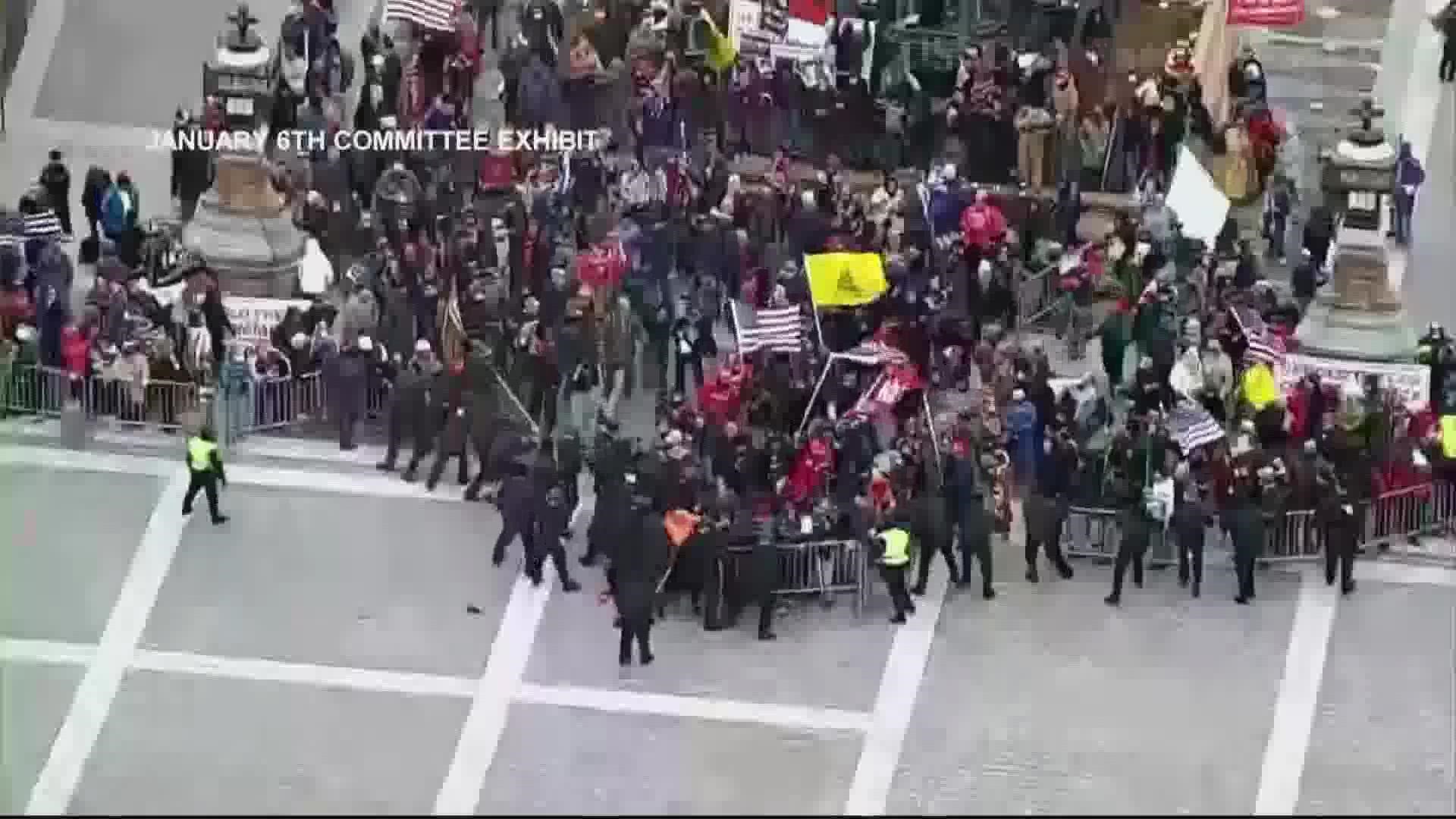WASHINGTON — Ever since its primetime debut and two subsequent hearings, the Select Committee to Investigate the January 6th attack on the U.S. Capitol has seemingly focused its efforts on convincing the public of the overwhelming culpability of former President Donald Trump in orchestrating the day's chaotic and violent events.
A variety of statements and tweets, however, have raised a narrative that members of the bipartisan committee somehow disagree on whether or not the Committee should prepare to offer a criminal referral against Trump to the Department of Justice.
"This idea that there's a disagreement, I think is perhaps incorrect," said Committee member Representative Elaine Luria (D-VA). "It's probably a disagreement on how we deliver that. What does it look like? And what does a criminal referral from Congress really mean?"
Just outside of her office in the Cannon House Building, Congresswoman Luria and I spoke at length about the possibility of criminal charges against the former President, the Committee's ultimate purpose and what's still ahead in the four remaining Committee hearings.
Luria told me she believes Congress has a responsibility to refer information to the appropriate authorities if Congress uncovers or concludes criminal activity has taken place.
"There is clear evidence that a criminal act probably occurred," said Rep Luria. "Conspiracy to disrupt or impede the Congressional proceedings, as well as to defraud the government of the United States."
While this question about possible criminal charges against former President Trump is important, the overwhelming discussion on this topic is serving to marginalize the other missions of the Committee -- namely, what will the Committee's final work product include?
"The purpose of the Committee is to provide legislative recommendations to prevent something like this from happening in the future," said Luria. "We're really trying to identify what led to it (the Capitol riots). What are those points of vulnerability in legislation and security for the Capitol? In all of our institutions and government agencies? So that we can produce a report that includes recommendations to prevent something like this in the future."
Also brought to the forefront this week were revelations about Ginni Thomas, the wife of Supreme Court Justice Clarence Thomas, and her alleged role in attempting to convince state legislators in Arizona to send an alternate slate of electors to Washington.
"As we learn new information, we would like to hear from her (Ginni Thomas) based on some of the new information that we've heard," said Luria. "She put out a statement saying that she'd be willing to come speak to the committee. So we welcome that."
Thursday's most recent hearing focused entirely on former Vice President Mike Pence and the pressure campaign against him by Trump and his allies to try and convince Pence to reject the certification of the 2020 election and ask a number of states to recertify their results.
Pence ultimately performed his ceremonial duties on January 6th without following through on the allegedly illegal scheme to interject himself into the proceedings.
Had Pence gone along with Trump's wishes, Luria says it's hard to imagine where the U.S. would be at this moment in time.
"His (Pence) adherence and devotion to the Constitution clearly saying and never wavering from the fact that he didn't have that authority to change the results of the election is really what has preserved essentially our democratic institutions, our democracy and let us be able to continue the certification of the election results, and ultimately to have a transition of power," said Luria.
Four more Committee hearings remain. One is scheduled for Tuesday, June 21 at 1 pm and another for Thursday, June 23 at 3 p.m.
Luria says she and Rep Adam Kinzinger (R-Illinois) will lead the questioning for the final hearing that's not yet scheduled. That hearing will focus, Luria says, on a critical 187 minutes that unfolded on January 6th.
"What happened on that day, what was happening in the White House and what was the contrast between the action or inaction in the White House and the violence that was happening here at the Capitol," said Luria. "I think that the key theme of that will be the dereliction of duty. Essentially, for the President, it's clearly defined in the Constitution that he has a duty to ensure the laws are faithfully executed. And he didn't live up to that day."

